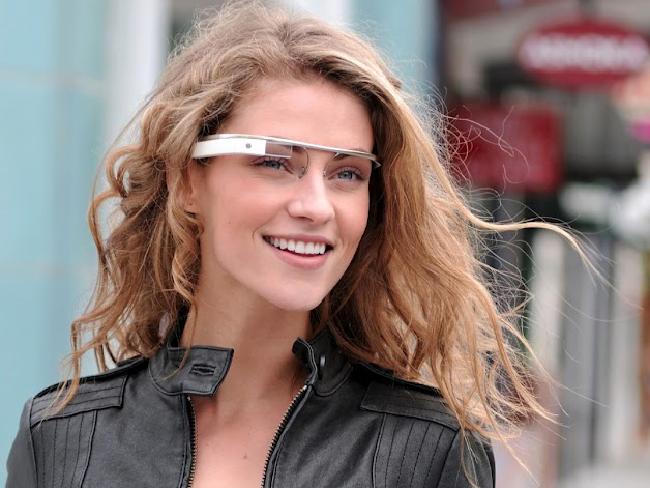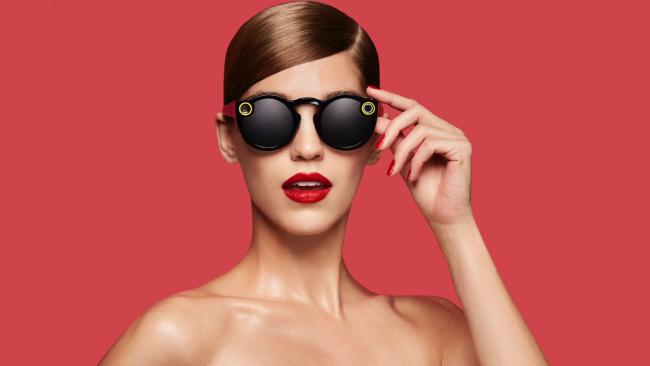
Will Apple customers wear digital glasses? Picture: David Paul Morris
AFTER bringing out the market-leading Apple Watch, Apple is now considering the next step in wearables, smart — aka digital — glasses.
The consumer electronics giant is “weighing” whether to get into the digital glasses business, according to a report this week from Bloomberg.
The wearable device would sport a wireless connection to the iPhone, display images and data on the “wearer’s field of vision,” and tap augmented reality (AR), the report said, citing unnamed sources familiar with “a secret project”.
Apple has reportedly ordered limited quantities — for testing — of the types of display used with the glasses. But that doesn’t necessarily imply that Apple will embark upon volume production right away, according to Bloomberg, which added that the glasses, if they did get the green light from Apple, wouldn’t be introduced until 2018 at the earliest.
WILL APPLE SUCCEED WHERE GOOGLE FAILED?
“This is definitely a smart move as there is growing interest in AR,” Jitesh Ubrani, an analyst at market researcher IDC, told Foxnews.com in an email. Augmented reality’s most important difference from VR (virtual reality) is that it doesn’t wall you in completely to an alternative reality. Rather, AR lets you interact with the real world around you. The best example today of AR is Pokemon Go.
But Apple should target business first and consumers second, Mr Ubrani said. “It would be in Apple’s best interest to target the commercial audience first as the benefits are more well defined and user acceptance tends to be higher,” he said.
Which is a lesson that Google learned painfully.

An early prototype of Google's futuristic internet-connected glasses which didn’t catch on with consumers.Source:AP
“Looking back at the Google Glass … it failed to work in a consumer setting and wasn’t able to sway sentiment. Many consumers outright hated the idea. Remember ‘glass-holes’?” Mr Ubrani said, who added that Google Glass actually did well in some narrow “vertical” commercial markets.
Indeed, the few consumers who tested Google Glass were typically ostracised because of the built-in camera (think: privacy concerns pegged to the potential for stealth videos) and users found the glasses to be kludgy and odd-looking. Plus the fact that few were well-heeled enough to afford the $A1589 price tag.
But that doesn’t mean that Apple won’t take a different tack. Snap (formerly SnapChat) is offering a bare bones take on smart glasses with its new Spectacles for $130. (With limited availability now.)
The glasses are essentially a wearable camera that allows you to shoot video (with an “on-air” light so everyone knows you’re taking video), then upload it to your smartphone via Bluetooth. And, of course, you can then post it to Snapchat. One of Snap’s taglines underscores the glasses simplicity: “Just for Snapchat.” If Snap succeeds in the consumer space that could be the green light for Apple too.
And Apple needs another hit product.

SnapChat has recently released its own pair of photo-taking sunnies.Source:AFP
“With limited growth in the iPhone business, the dependence of the glasses on the iPhone could also help bolster iPhone growth,” Mr Ubrani said.
And Neil Saunders, managing director of research firm Conlumino, told Foxnews.com: “A move into wearables would be logical for Apple, which is struggling to find new ... products to add to its portfolio. That said, the danger with smart glasses is that consumers still see them as a gimmick rather than as a useful, problem solving device.”
As the Bloomberg report points out, Apple “specialises in turning technology that others have struggled with into easy-to-use devices for the masses.”
This article originally appeared on Fox News.
Can Apple make wearable tech cool?5:06

Wearable tech has had mixed success commercially so far, will the public perception shift with the release of the Apple Watch?







